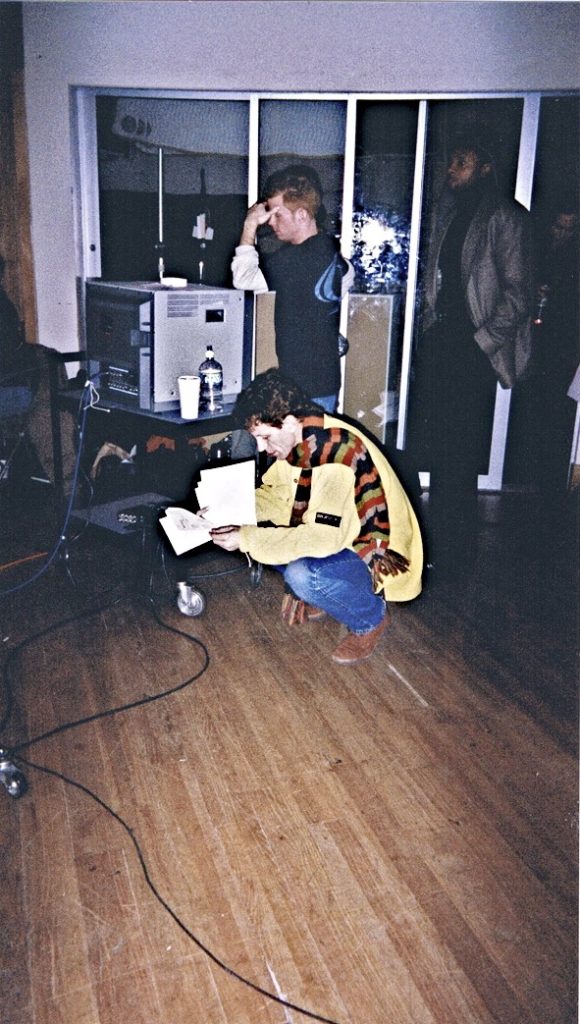Posted on August 6, 2020 at 11:40 pm
I only ever saw Brent Carver play two roles, both of them men unjustly imprisoned. His Molina in “Kiss of the Spider Woman” was flamboyant, relentless, emotions splaying like a pinwheel. I was working as a rehearsal pianist on that show, so I saw it probably thirty or forty times. Every time I saw it, he seemed to be experiencing it completely anew. He was surrounded by hardcore Broadway types who knew how to hit their marks and slam it to the back wall night after night, but Brent was doing something different, something much more slippery and dangerous; he was responding, second by second, beat by beat, to whatever Molina saw, heard, felt. In some ways, it was alarming for me to watch an actor be that vulnerable and open on stage. He was entirely unpredictable, but of course he never missed a line, never was in the wrong light. He got thrown in this huge Broadway machine and managed to retain his essential bespoke self.
Five years later, Hal suggested that Brent should play Leo Frank in “Parade.” This was typical Hal – he had found an actor he liked and so he wanted to work with that actor again, whether it was a logical fit or not. To put it bluntly, Brent was not a logical fit to play Leo Frank – he was easily fifteen years too old for the part; he was blond and blue-eyed and spoke with a clearly identifiable Canadian accent, which made no sense when playing a New York Jew; and most importantly, when Brent had played Molina, he made that character a big messy open book of a man, unrepressed and desperate for attention. Nothing could be further from the way we had conceived of Leo – buttoned-up, withdrawn, defensive. Brent Carver could do a lot of extraordinary things, I was sure, but “cold” was not in his wheelhouse.
But Hal latched on to the idea in classic Hal fashion, and he simply would not stop saying how perfect Brent was for the part. After a while, Alfred and I relented and allowed Hal to bring him to New York for an audition. And, as Hal surely knew all along, having a truly great actor read your words, sing your notes, is a transformative experience. Instantly – and I really mean that, it happens in microseconds – the character in your head begins to mesh with the actor in front of you. Brent’s choices started to feel like Leo’s choices, Leo’s words started to feel like Brent’s words. What had seemed ridiculous when Brent walked into the room felt inevitable by the time he left. Of course Brent HAD to play Leo. And so he did.
Honestly? Brent WAS probably miscast in “Parade,” but everything about “Parade” is better because of what Brent brought to that part. He made us as the authors give more space to Leo’s humanity and confusion; he brought out a simplicity and an emotional core in Hal’s staging; and his effect on the other actors in the company simply can’t be overstated. To watch the scenes between Brent and Carolee Carmello was to watch him constantly, gently guide the focus away from himself and towards her glorious performance. He was like that with every member of the cast. It is one of the great gifts of my life that I had my work interpreted by the magnificent Brent Carver.
I’ve never heard a clearer articulation of what it means to be an actor than this quote from Brent, from a New York Times interview in 1993: “You can get lost in love. And certainly you can get lost in the need and love for a certain something — call it success — in this business. But if all things are equal, you are allowed to be more of yourself on stage than off it. You allow that. Those emotions you wouldn’t, or couldn’t, get in touch with in ordinary life are possible on the stage. Your life doesn’t stop for two hours and 20 minutes while you’re playing a character, you know. A lot of people think it does. But you’re still alive. You’re very, very much alive as yourself.”

2 comments
What sad news. I’ll be listening to recordings on repeat today–such a lesson on how to bring passion to your performances. Rest well and in peace.
What a lovely tribute. I never got to see his portrayal of Leo Frank, but I still get chills every time I hear him sing “This isn’t Over Yet” from the original cast recording.
The comments are closed.